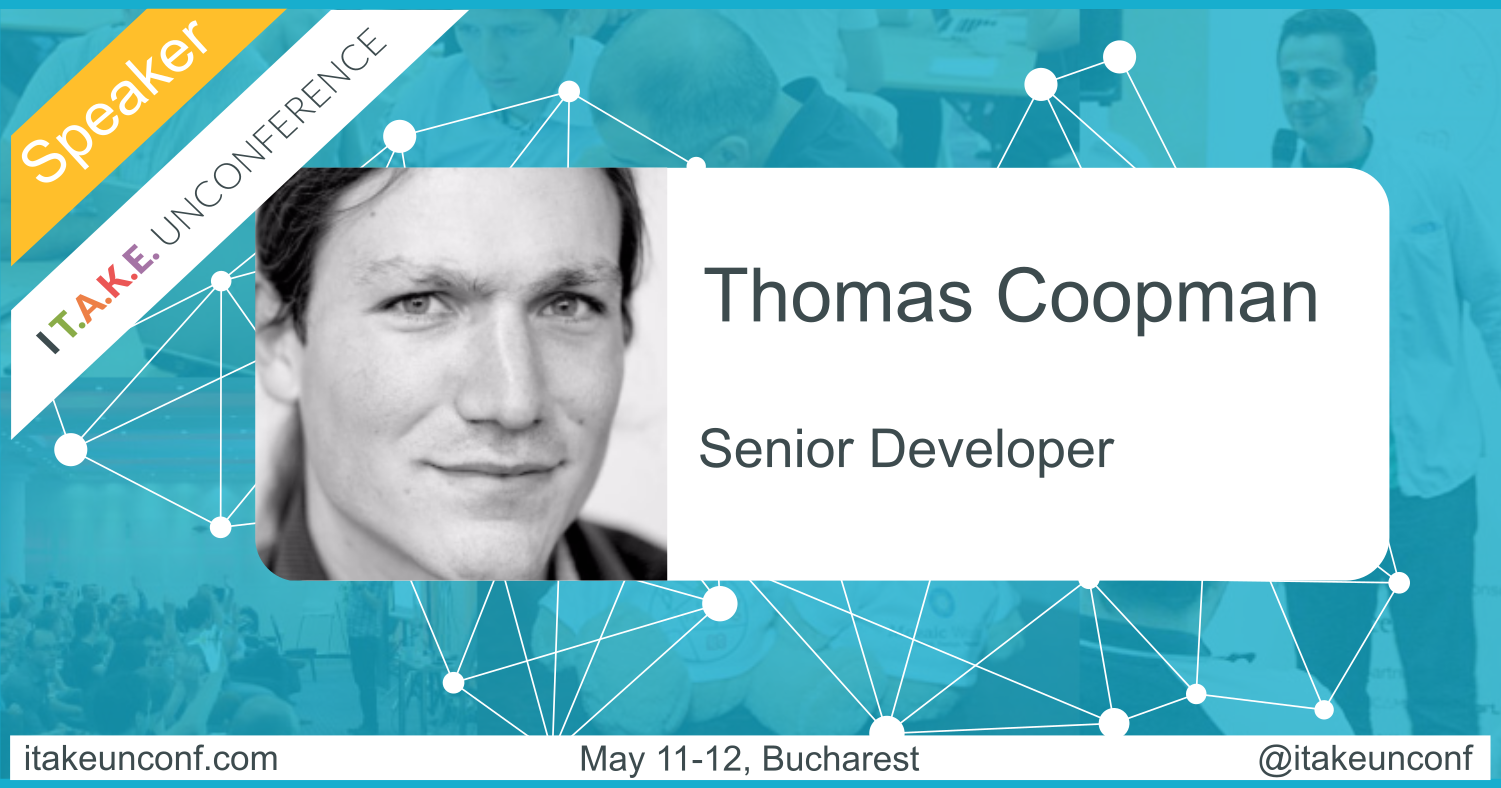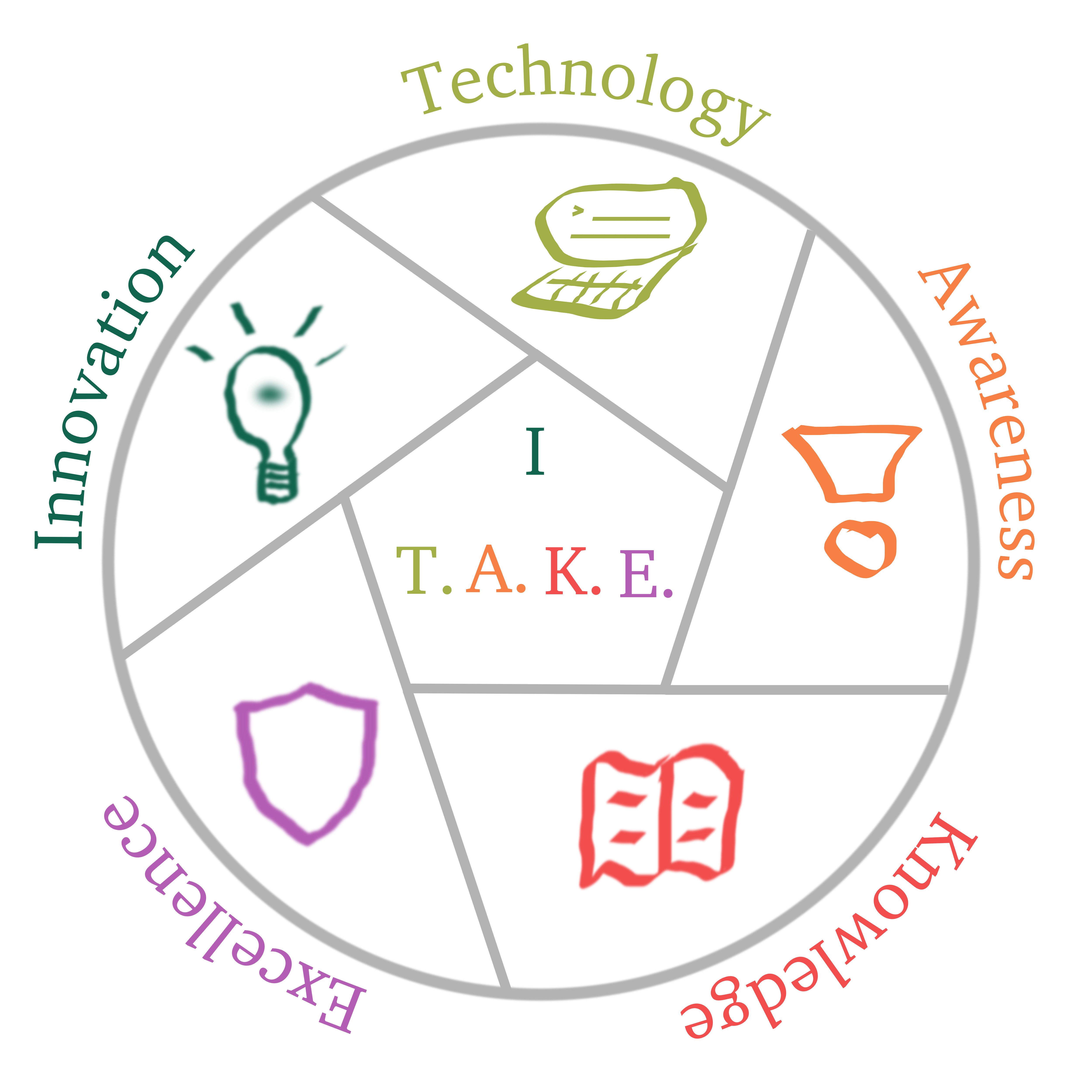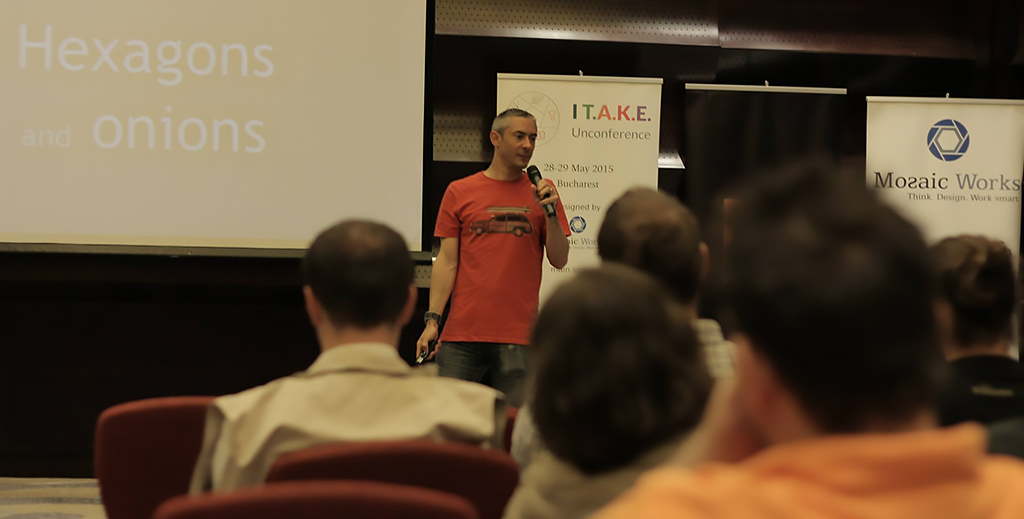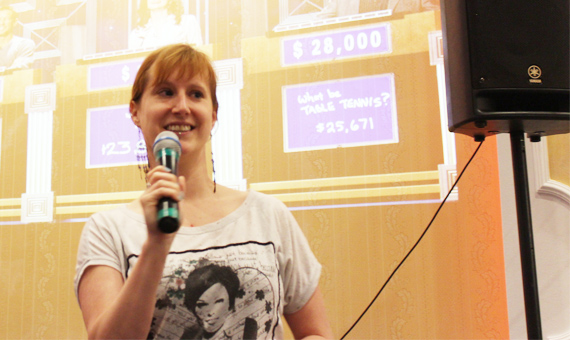
Enjoy the following series of interviews with the speakers, top-notch software crafters from across Europe, joining I T.A.K.E Unconference, Bucharest, 11-12 May. Discover the lessons learned and what drives them to challenge the known path in their field.
Thomas Coopman is an independent software engineer and consultant focused on the full stack: frontend, backend and mostly people, practices and processes. At #itakeunconf, in his hands-on session, the participants will be implementing projections based on an event stream we provide.
#1. Please share with us 5 things you did that helped you grow and become the professional you are today
I draw most of my inspiration from visiting and organizing events in the communities. Additionally, the Software Craftsmanship Slack Team is a great place to start discussing with craftspeople all over the world.
1) Experimenting with different career choices until it felt good
2) Exchanging experiences with fellow professionals by attending meetups, usergroups and conferences
3) Fighting the urge to assume I’m always right
4) Limiting the subjects I’m willing to learn and invest time in
5) Investing in my communication techniques. I’m continuously learning to speak non-techie. I’m practicing speaking in front of an audience.
#2. What challenges will the participants find solutions to during your session at I T.A.K.E Unconference 2017?
The ability to extract useful knowledge from a store of historical events.
#3. Recommend for the participants 3 sources you find inspiration from and would help them better understand you
1) The Software Craftsmanship and Testing community are awesome. Reach out to them.
2) Listen to any podcast or audiobook during your commute. It’s far better for your personal growth than listening to the (mostly bad) news on the radio. I particularly like these podcasts: Star Talk Radio and Hardcore History.
3) Pick up a musical instrument and learn to play it adequately. I tend to relax with a guitar in my hands or a piano at my fingertips.
Want to join Thomas and ~300 software crafters from around Europe?
Register now for I T.A.K.E Unconference 2017!






